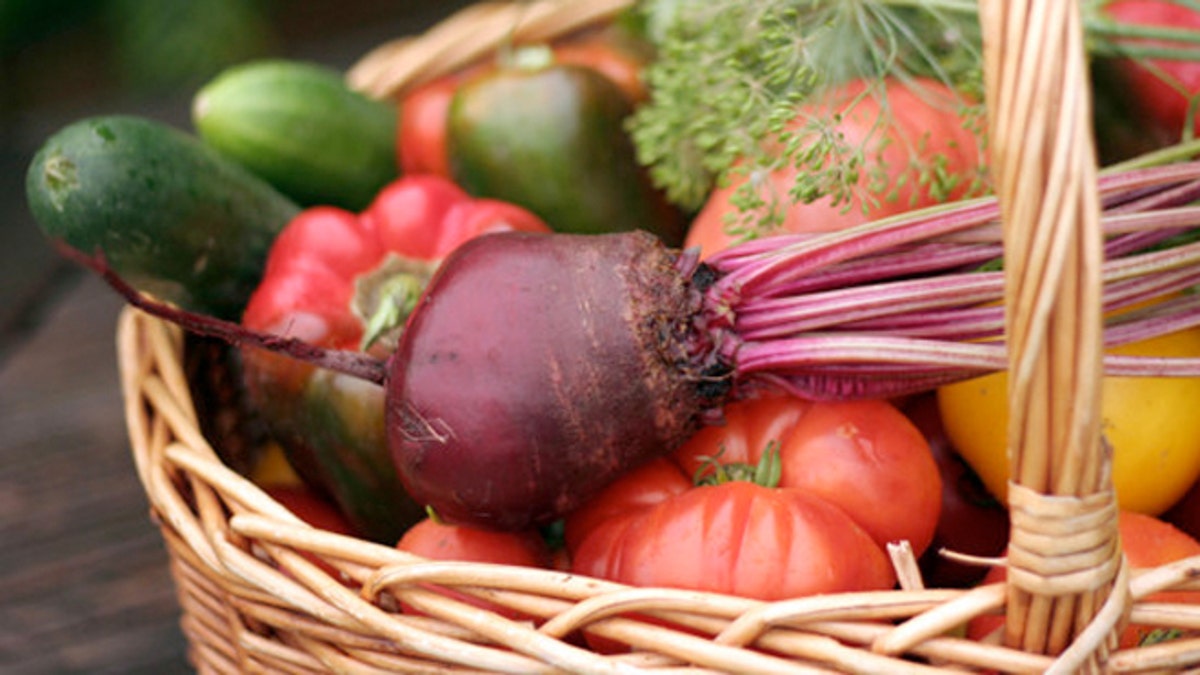
(iStock)
The week started with a blur—parties, events, benefits—and grocery shopping. Only this week was different, because my food budget shrank to $33. I was taking the food stamp challenge.
Several celebrities and members of Congress have taken similar challenges to simulate the experience of more than 46 million Americans who are now served by the Supplemental Nutrition Assistance Program (SNAP), formerly known as food stamps. These are the people who have just $4.50 a day to spend on food. They are also twice as likely to have type 2 diabetes.
As a health advocate and foodie, I wanted to prove that you can eat well and eat healthy on a budget. Was it a challenge? Yes. Was it possible? Totally.
I focused on high-fiber, nutrient-rich foods: fruits, vegetables, whole grains, and legumes. I bought whole-grain pasta, brown rice, oatmeal, carrots, kale, lettuce, cabbage, broccoli, apples, mangoes, pears, nectarines, bananas, black beans, white beans, pinto beans, chickpeas, and organic peanut butter. I skipped indulgences like vegan ice cream, prepared items, and packaged foods. I made a list in advance and I didn’t make any impulse purchases at the store (except for one small jar of tomato sauce for $1.59).
It was close to midnight when I went grocery shopping for my food stamp challenge. I was tired and my brain was foggy. I was nervous when I got to the cashier that I hadn’t paid careful enough attention to the tally and that I’d go over and have to put something back. I couldn’t remember a single time when I had to be this mindful of how much I spent on groceries. It really opened my eyes to what so many people must go through every day.
Since it was so late at night, the store only had one checkout lane open, and there was now a line behind me. I told the cashier I only had $33, and imagined the walk of shame I’d have to make if I’d gone over. My total: $28.88. I was under by $4! (I went back into the store and bought more mangoes at $1 a piece.)
Since SNAP is a supplemental program, I used some of the food I already had at home, like bread, jelly, garlic, rice milk, olive oil, and vinegar. For breakfasts I rotated between oatmeal with peanut butter and jelly and a banana, a fresh fruit salad, or smoothies made with either a banana, peanut butter, and rice milk, or a banana, a nectarine, and rice milk. Lunches and dinners were simple, but nourishing—I made every variation I could think of with the beans, rice, pasta, and veggies.
I had salads, bean salads, beans and rice, stir fries, pasta with red sauce, pasta with broccoli, kale, garlic, and white beans. I snacked on mangoes, pears, and apples with peanut butter.
Since going vegan, my taste buds have changed so much and healthy food tastes really good to me. So my grocery list and meal plan for the week weren’t that different than what I usually do. But I can imagine how hard this would be for Americans who are addicted to junk food, like chips, soda, and sugar. Or for Americans who are addicted to meat and cheese, which are high in fat, saturated fat, and cholesterol, and low in fiber and nutrients.
I’ve partnered with the Physicians Committee for Responsible Medicine to push for a revamped SNAP program to promote healthy basics like whole grains, fruits, vegetables, and legumes. This way people could go into their local corner stores and get an apple instead of a Red Bull. They could opt for foods that help fight type 2 diabetes, heart disease, obesity, and other costly diseases.
You don’t have to try limiting your grocery budget to $33 a week to understand the relation between poor eating habits and poor health. Two out of three Americans are overweight or obese, and more than 100 million have diabetes or prediabetes. Childhood obesity rates have tripled over the last 30 years—one in three children is now overweight or obese.
I hope my challenge can be used to promote simple, nourishing foods for any budget.
CLICK HERE FOR RORY'S RECIPE FOR GREEN GLAMOUR SMOOTHIES
Rory Freedmanis the co-author of the best-selling diet book Skinny Bitch.
